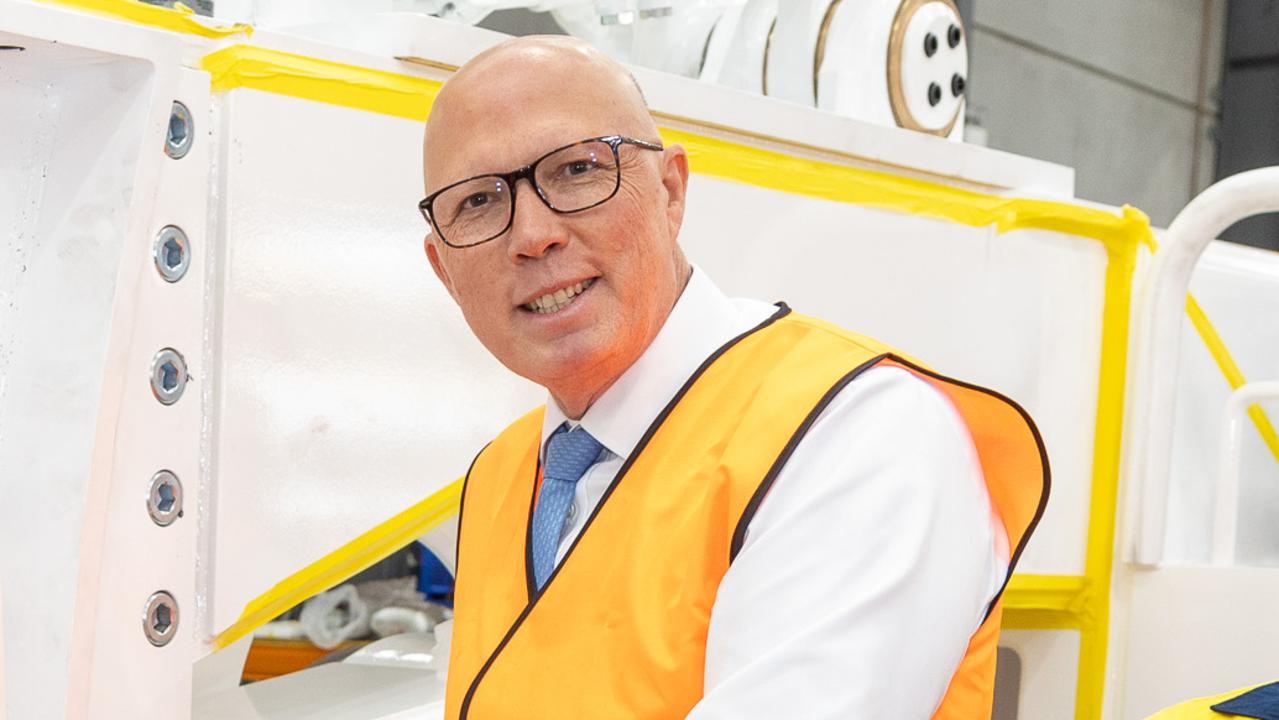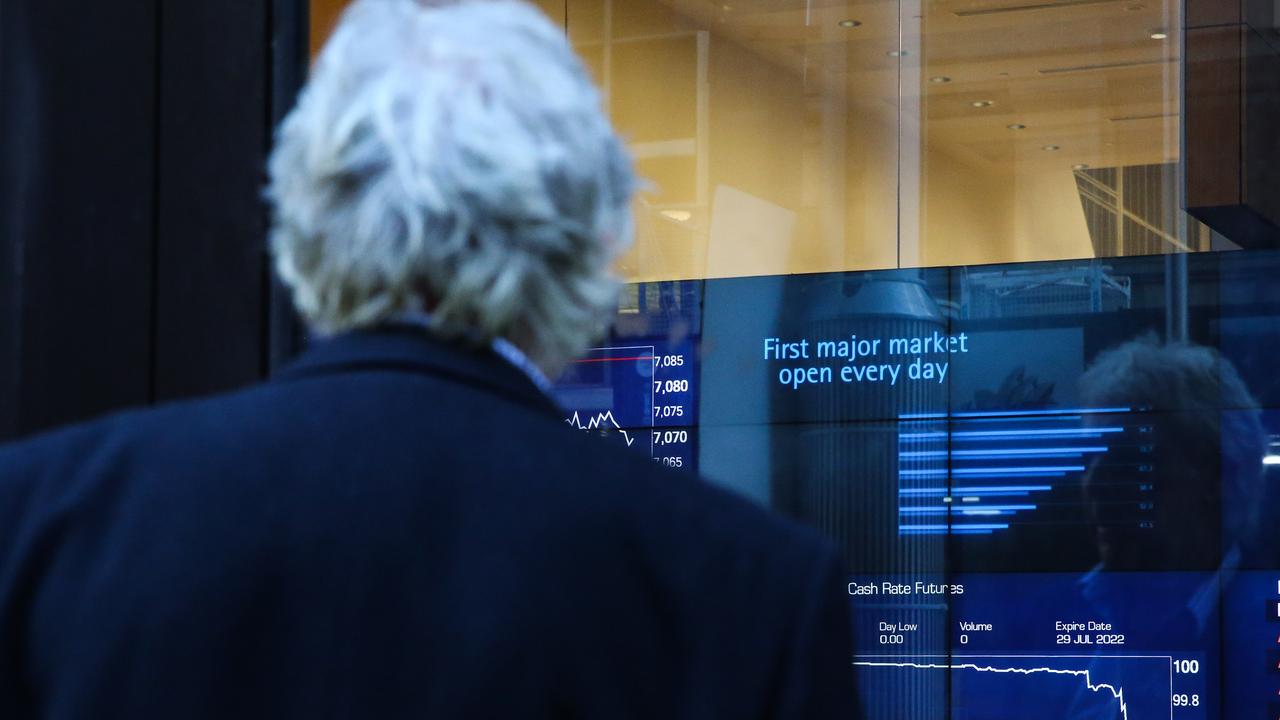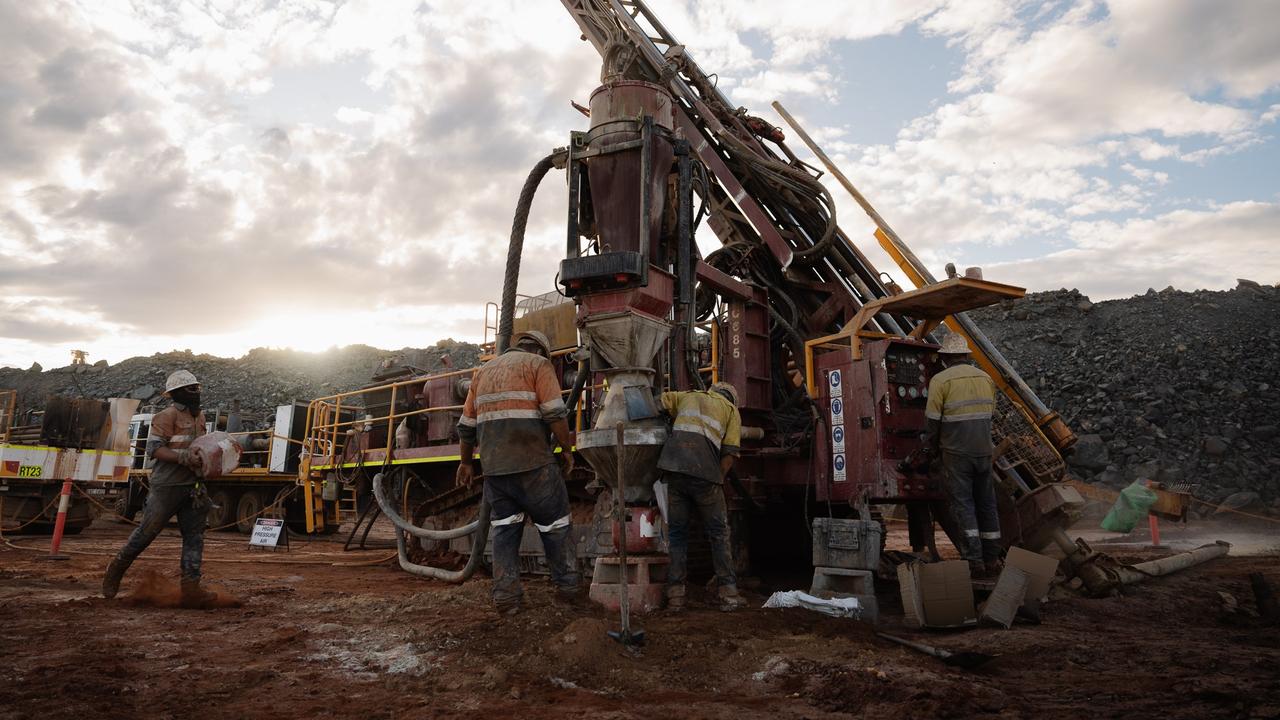China targets Australia’s rare earths as tensions escalate
China could stop every technological and electrical industry in the world and plunge the planet into the dark ages with just one move.
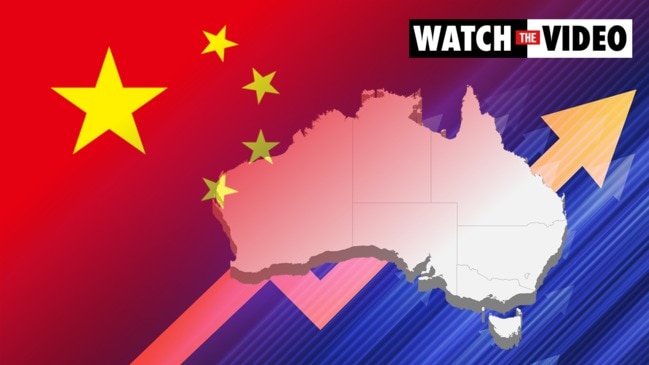
China has the power to stop every technological and electrical industry in the world and plunge the planet into the dark ages any time it wants, an expert has warned.
Even more worryingly, escalating tensions between China and the West makes it look very likely that this will happen sooner rather than later.
Dr Jeffrey Wilson, research director at the Perth USAsia Centre, said that China owns around 80 per cent of the world’s supply of critical minerals – which is a “powerful weapon”.
“Critical minerals are weird rocks basically – you’ve got them in your phone, in the (TV) antenna, in your computers. They’re used in tiny quantities,” he told news.com.au.
“China has worked out they have a weapon. This is a potentially weaponisable asset, the same way Saudi (Arabia) has petrol.”
Even though a smart phone only uses 50 micrograms of critical minerals, it wouldn’t be able to function without them.
It’s not just smart phones but laptops, batteries, military equipment including missile radars and fighter jet navigation, medical diagnostics, wind turbines, solar panels and electric vehicles, to name a few, are all dependent on critical minerals.
China could “bring the world to its knees” if it decided to cut off access, according to Dr Wilson.
RELATED: Australia’s sweet revenge against China in trade war
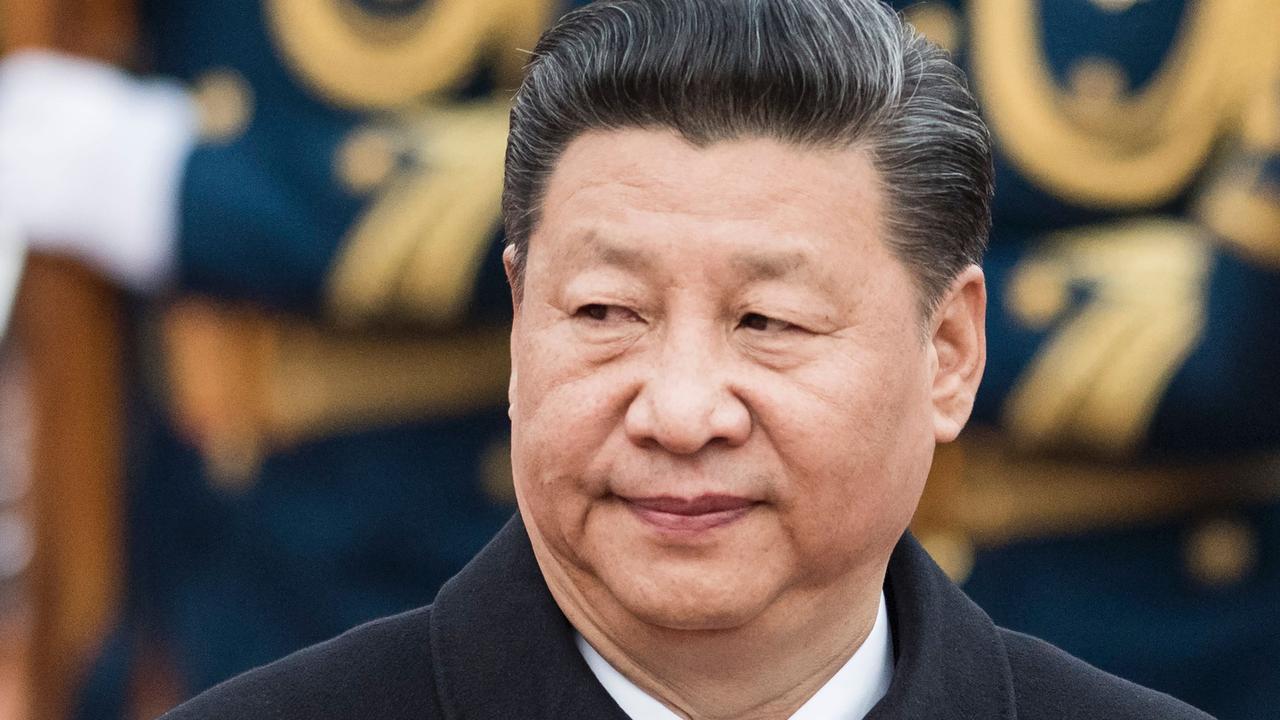
RELATED: Aussie item China can’t get enough of
The planet would be plunged into something similar to a dystopian novel if China decided to stop producing critical minerals.
“It would be an economic disaster. The price of cars would go up 20 fold,” Dr Wilson said.
“You may not be able to get them at all (laptops or phones). Could you imagine?
“Prices would rise dramatically.
“The supply of electronics would be greatly constrained, everything from phones to TVs to medical diagnostic equipment, military equipment, it’s everywhere.
“It would give China a way to stop the world’s automotive industry.”
China has been embroiled in a trade war with Australia for the last 18 months, after Prime Minister Scott Morrison angered the communist nation by calling for an investigation into the origins of the coronavirus.
Iron ore, barley and even lobsters have fallen foul of the Asian superpower in its bid to undermine Australia’s economy through cutting off trade.
However, Dr Wilson warned that nothing compared to the havoc China could wreak from stopping critical minerals reaching our shores.
“It puts all of Australia’s trade issues in perspective. They would pale in comparison to this,” he said.
RELATED: China’s fear behind spy ship move
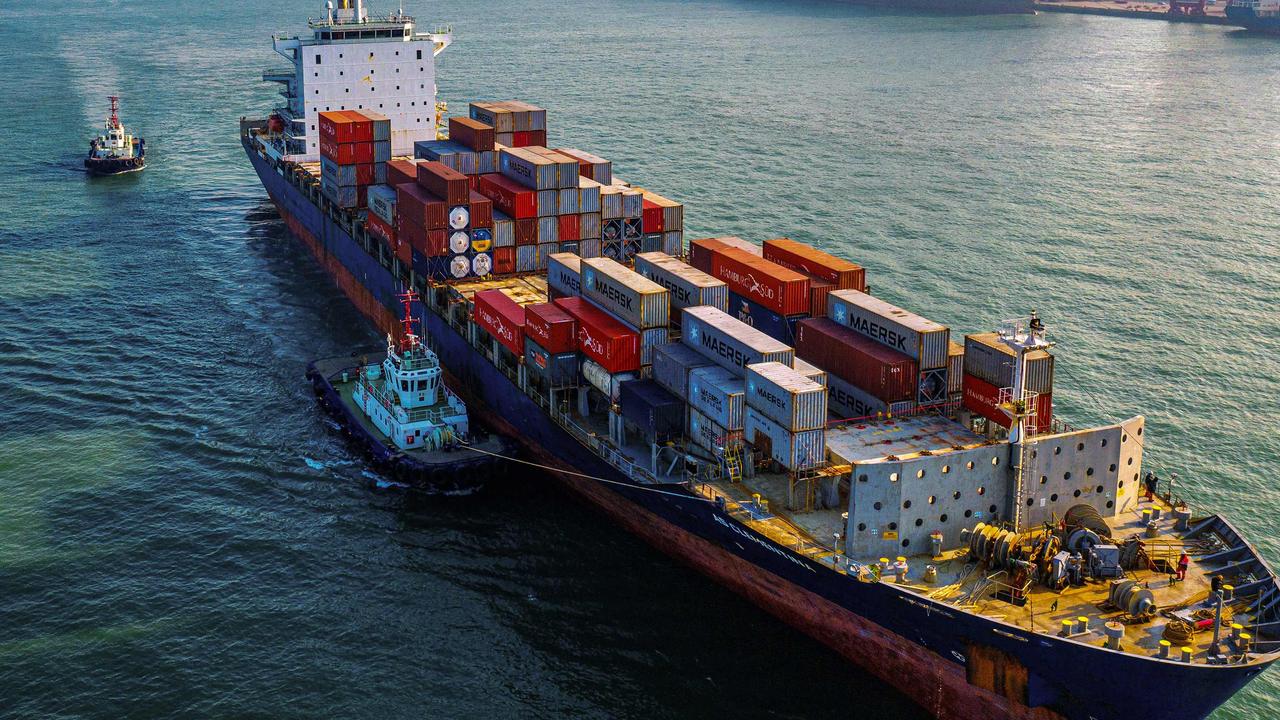
And it’s not just a conceptual idea – China cut off Japan’s critical mineral supply in 2010 to pressure them into releasing a Chinese citizen.
Dr Wilson said it was a “significant” blow for Japan’s electronic and technological industries.
“Even though it’s (critical minerals) a tiny bit you can’t create without it.”
After two months, Japan’s ban was lifted.
China’s actions were condemned by the US, the European Union and Japan and the World Trade Organisation also said the communist nation had violated global trade rules.
But that won’t stop it from happening again.
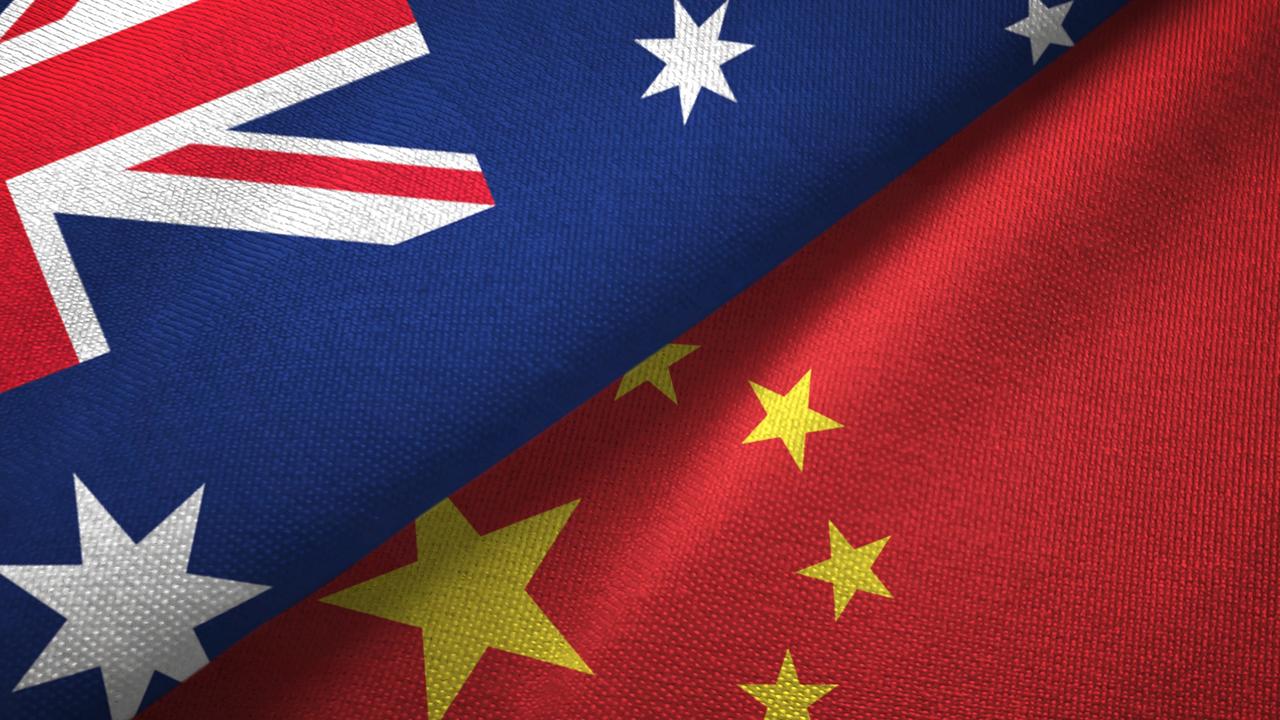
Critical minerals include cobalt, magnesium, lithium, platinum and rare earth elements, among others.
“Basically anything after 60 on the periodic table (is a critical mineral),” Dr Wilson joked.
China has a chokehold on critical minerals, especially rare earth elements, which are a group of 15 elements in the periodic table known as the Lanthanide series.
Around 70 to 80 per cent of the world’s supply of rare earths come from China.
The rest are all in Australia.
The term “rare” is a misnomer for rare earths.
These rocks are relatively abundant, especially as only a small amount is needed in technology, but the problem lies in production.
There is only one factory outside China that is able to process them.
“It’s easy to pick up rocks,” Dr Wilson said.
“Our rocks get sent to China, where they get processed into a chemical, that can then go into a laptop, phone, solar battery, etc.
“Even though it comes from an Australian source, there’s a middle step that’s going through China.”
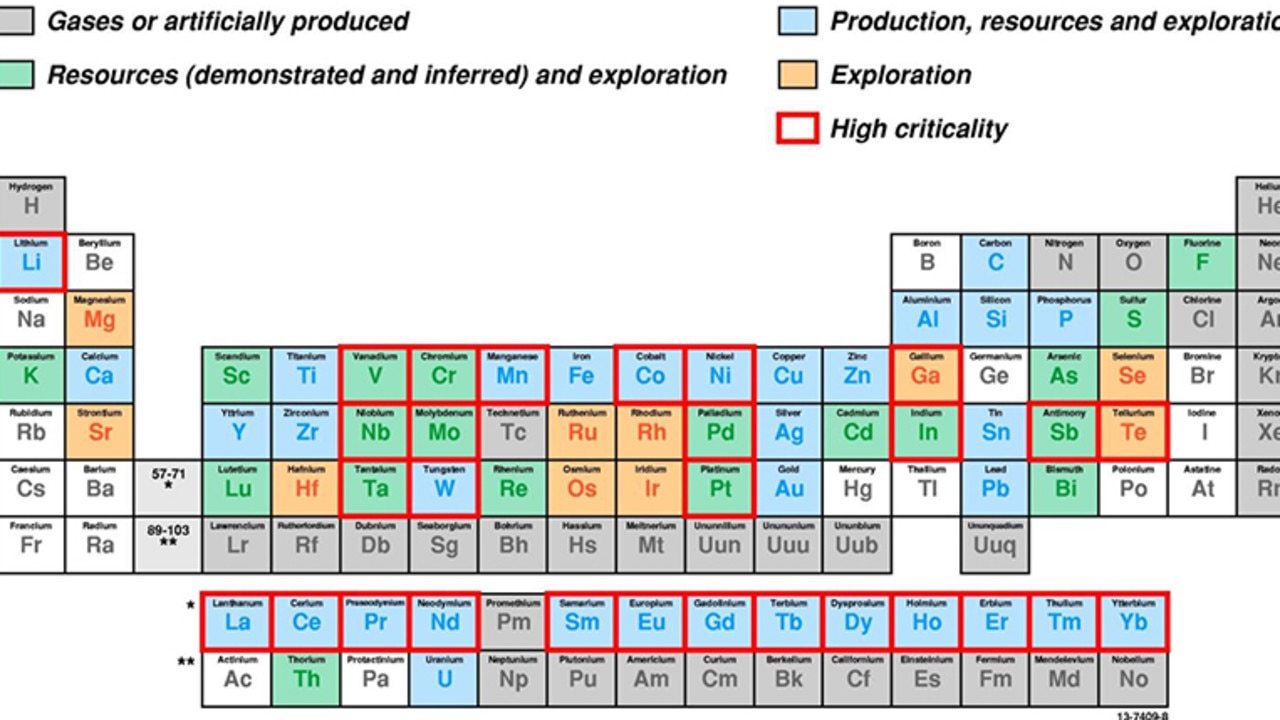
According to Dr Wilson, the solution is a simple one.
Australia should team up with another country that has the means to process the minerals, like the US, Germany or Japan.
That way Australia can mine the products, and then process them, without needing China.
“If China cut it off, a government would very quickly create their own processing facility,” Dr Wilson said.
“The problem is it doesn’t happen straight away. Everyone would have to panic and rush.
“If we have a look at the way geopolitics is going, the worst that gets, the more likely this is to happen.
“The argument is if we’re going to do this at some point, let’s do this now before it catches fire.”
alex.turner-cohen@news.com.au | @AlexTurnerCohen

